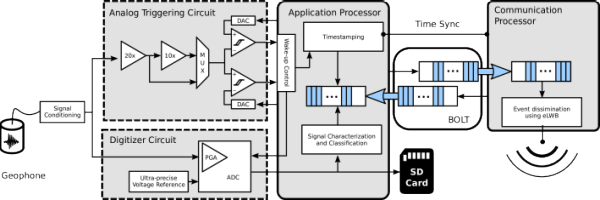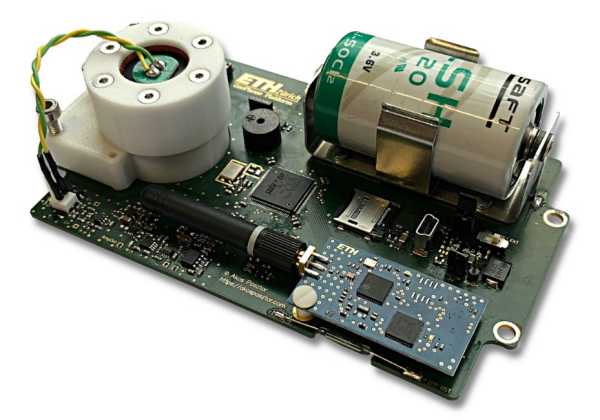Event-based Sensing
Enabling sensors to monitor our environment for decades on a single battery
Environmental monitoring for natural hazard warning requires a system which must be both reliable and accurate. Continuous measurements are a key factor for accurate systems; however, the higher energy consumption of continuous measurements shortens the lifetime of battery-powered monitoring systems and thus decreases reliability and availability. If the system only gathers (infrequent) periodic measurements, the overall energy consumption is significantly lower and can be realised on a single battery charge, but an ephemeral hazard between measurements might be missed, leading to an unreliable warning system.
We focus on a system which continuously listens for events in a low-power mode and only records and transmits measurements when an interesting event is actually happening. These systems require new event-driven sensing and communication strategies as well as on-device signal characterization, which is the focus of our work.
Geophone sensor - high-quality data in a small form factor
In order to gather data samples more efficiently, we leverage an analog front-end to trigger sampling only when a seismic event with a sufficient magnitude has been detected. This enables us to turn off the energy-expensive digital parts of the sensor and only gather data when changes in the environment are occurring.
Event-based communication - exploiting the rarity of events
While the restriction of sensing to interesting points in time can be facilitated through hardware, limiting wireless communication only to the rare occasions when the sensor actually has data to transmit is difficult. Because it is necessary to report event data with a low latency to a data sink so appropriate measures can be taken, it is necessary to communicate reliably and without excessive delay. Traditional low-power solutions perform periodic synchronous rounds of communication to keep networks in sync and maintain state; by avoiding consistent networks and only creating ad-hoc networks to exchange event data, we propose a fundamentally new way of gathering and analysing sensor data in wireless sensor networks.


